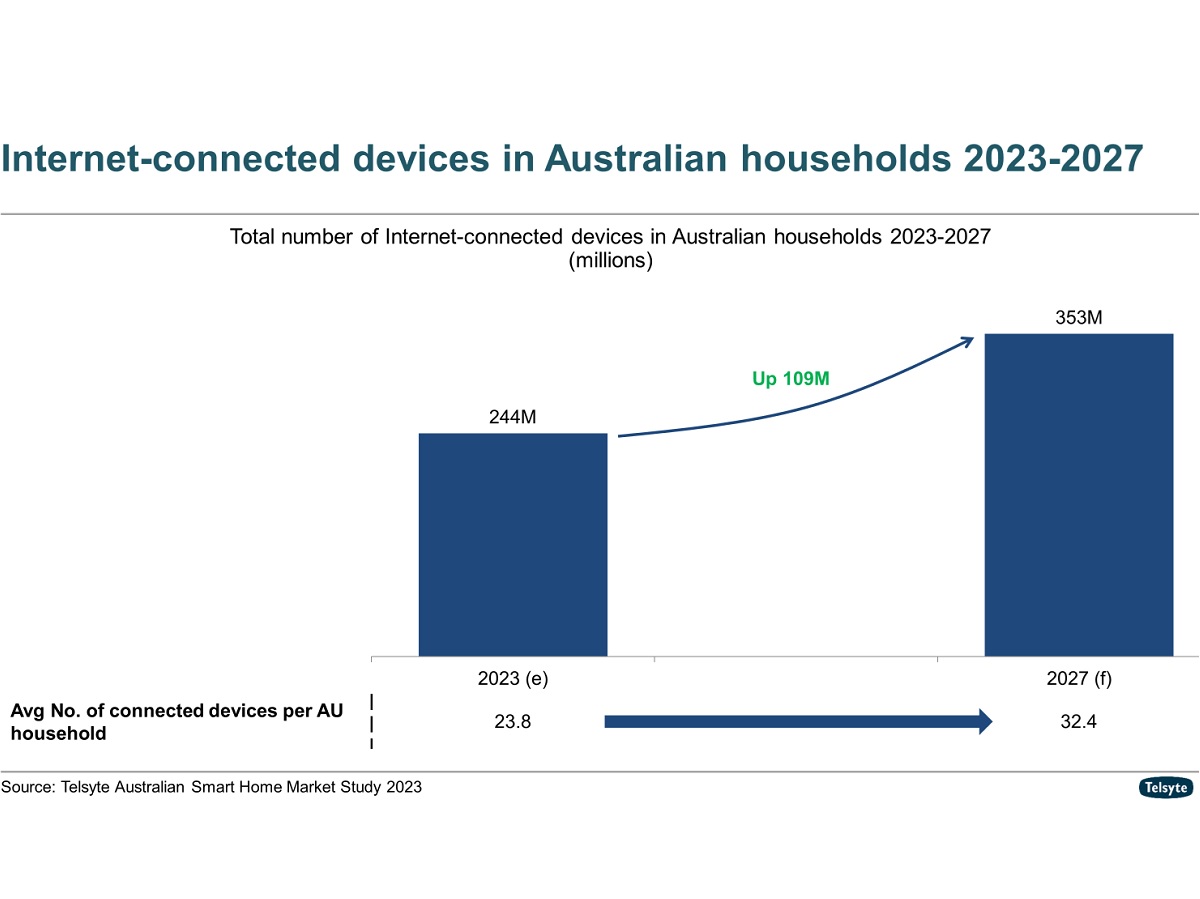Despite recent economic headwinds, Australians are still interested in smart home technologies with 7.6 million households now having adopted at least one smart home product, with nearly 24 connected devices per home as of 2023, according to research from emerging technology analyst firm, Telsyte.
The Telsyte Australian Smart Home Market Study 2023 found that Australia’s smart home market is set to reach $2.5 billion in revenue, driven by demand for energy efficiency, security, price increases, and anticipation of the smart home concept benefit from technological advancements in generative AI.
Almost half (48%) of invested adopters (consumers who have adopted five or more types of smart home devices) say current smart home offerings are not yet ‘smart’ enough, according to the study.
Telsyte’s research found in 2023 cost of living pressures outweighed the benefits of a smarter home with over half (59%) under increasing financial pressure and less looking to adopt energy optimising solution for their home to combat rising energy costs.
However, cost of living pressures will not stop the transition to smarter homes and nearly one third of households now have five or more smart devices.
Smart appliance vendors are committed to enabling ‘connected’ living with air conditioning, washing machines and fridges taking the lead among appliances consumers see as important to be ‘smart’. The study found nearly one in five (18%) households have a robot vacuum with more general-purpose robots on the way.
In addition to cost savings and better energy efficiency, the study found close to one in three (28%) households want to reduce environmental impact with smart energy solutions.
The past 12 months has also seen a lot of hype around generative AI and services like ChatGPT, and Telsyte found device product marketing is shifting from ‘connected home’ to AI-enabled smart living.
New Gen AI voice assistants bring superior cognitive understanding of user intentions with advanced natural language processing, and 60% of consumers believe AI can manage a smart home better than themselves. In addition, 43% of people are keen on a smart home with advanced AI capabilities that enable seamless natural language communication and automate complex tasks.
The average number of Internet-connected devices in the home is expected to grow by nearly 10 in the next four years and the average number of smart home devices set to grow by nearly half by 2027, equivalent to more than 353 million Internet-connected devices in total.
Telsyte forecasts the smart home market to be worth over $5 billion by 2027 with high value smart home products such as smart batteries, smart appliances and services to drive smart home market value. Smart appliances could make up around one third of all appliance revenue by 2027.
While smart speaker adoption is stagnating, AI-powered experiences are poised to set off the next adoption wave. Google is adding generative AI capability to its Google Nest smart speakers, which are already the main smart speaker for over half of user households. The emerging Matter standard is poised to help unify disparate ecosystems.

